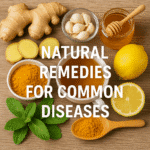Heart disease remains the leading cause of death worldwide, and one of its most critical and misunderstood emergencies is the heart attack. While many people associate heart attacks with sudden, dramatic chest pain, the truth is that your body may start sending warning signals days or even weeks in advance. Recognizing these early signs could save your life or the life of someone you love.
What Are Prodromal Symptoms?
Prodromal symptoms refer to the subtle signs and changes your body may experience before a full-blown heart attack. These symptoms are often mild, inconsistent, or mistaken for less serious health problems. However, paying attention to them, especially if you’re at high risk, can offer a valuable window for early medical intervention.
9 Early Warning Signs of a Heart Attack
1. Unusual Fatigue
Persistent or extreme tiredness that doesn’t improve with rest can be a red flag, especially in women. This fatigue may be present even without physical exertion and often worsens throughout the day.
2. Shortness of Breath
Feeling winded after minimal effort, like walking across a room or climbing a few stairs, may indicate reduced blood flow to your heart. Shortness of breath may also occur at rest or while lying down.
3. Chest Discomfort (Not Just Pain)
Not all chest symptoms feel like the dramatic, crushing pain we see on TV. You may feel:
-
Pressure or tightness
-
A squeezing sensation
-
A dull ache or discomfort that comes and goes
These sensations can occur weeks before the actual heart attack.
4. Sleep Disturbances
Difficulty falling asleep, waking up frequently, or feeling anxious during the night can be related to decreased oxygen flow and increased stress hormone levels in the hours leading up to a cardiac event.
5. Digestive Issues
Heart-related symptoms are often mistaken for gastrointestinal problems. Watch for:
-
Nausea or queasiness
-
Indigestion or acid reflux
-
Stomach pain or bloating
If these symptoms are unusual for you or occur frequently, don’t dismiss them.
6. Jaw, Neck, Shoulder, or Back Pain
These symptoms are more common in women. The pain may not be severe or constant—it can radiate, come and go, or feel like a deep ache or pressure.
7. Lightheadedness or Dizziness
You may feel faint, dizzy, or like you’re about to pass out. This could be due to reduced blood flow or irregular heart rhythms.
8. Heart Palpitations
A fluttering or racing heart, especially when at rest, can be a sign that your heart is under stress. If this feeling is new or more intense than usual, take it seriously.
9. Swelling in Legs, Ankles, or Feet
Poor circulation due to heart dysfunction can cause fluid retention, leading to swelling, especially in your lower extremities.
Why Early Symptoms Matter
Research shows that up to 50% of heart attack patients experience prodromal symptoms before the acute event. Sadly, many of these signs are ignored or misdiagnosed as anxiety, flu, or indigestion.
Taking these symptoms seriously means:
-
Early diagnosis
-
Prompt treatment
-
Better survival and recovery outcomes
When to Seek Immediate Help
Call emergency services if you experience any of the following:
-
Chest pain that lasts more than a few minutes or goes away and returns
-
Shortness of breath
-
Cold sweat, nausea, or lightheadedness
-
Pressure or pain in the jaw, neck, or arms
Do not drive yourself to the hospital. Every minute counts.
Final Thoughts
Heart attacks often give us warnings. We just need to learn how to listen to our bodies. Whether it’s unexplained fatigue, subtle chest discomfort, or an odd feeling in your jaw or stomach, don’t ignore it. Your heart may be trying to tell you something.
💬 If you or someone you know is at risk, share this article. Awareness is the first step toward prevention.



